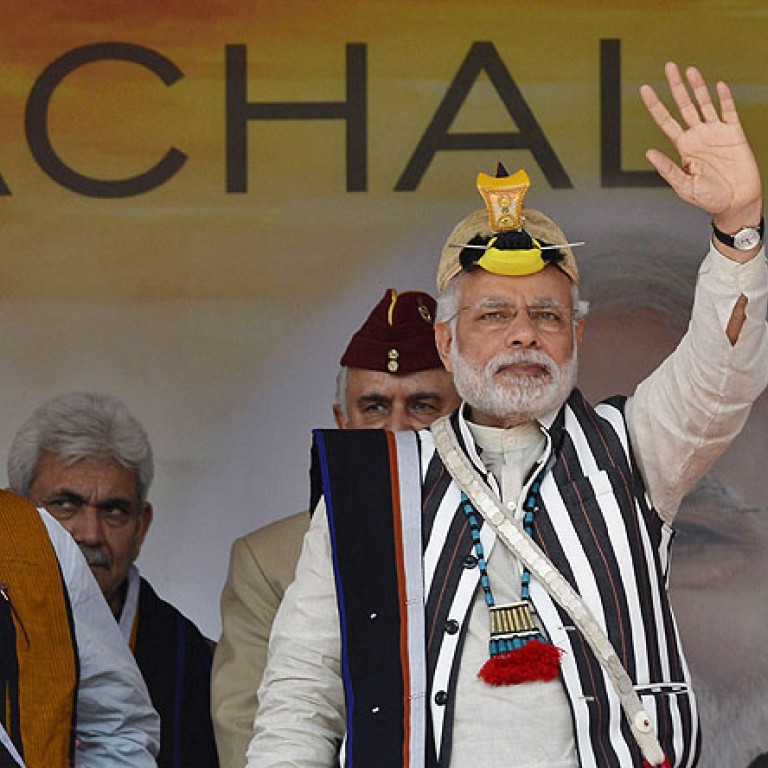
Beijing protests at the Indian prime minister’s visit to disputed border region
Vice-Foreign Minister Liu Zhenmin tells India's ambassador in Beijing Narendra Modi's presence in Arunachal Pradesh was 'not conducive' to developing bilateral relations
China has lodged an official protest against Indian Prime Minister Narendra Modi’s visit to a border region claimed by both countries.
China disputes the entire territory of the northeast Indian state of Arunachal Pradesh, calling it south Tibet. Its historic town Tawang, a key site for Tibetan Buddhism, was briefly occupied by Chinese forces during a 1962 war.
“The Chinese government has never recognised the so-called ‘Arunachal Pradesh’,” a statement on the Chinese Foreign Ministry’s website said on Friday, adding that Modi’s visit was “not conducive” to developing bilateral relations.
Vice-Foreign Minister Liu Zhenmin told India’s Ambassador to China Ashok Kantha on Saturday that China was firmly opposed to the visit.
“The Indian side’s insistence on arranging activities by leaders in the disputed region infringes on China’s territorial sovereignty and interests, magnifies the dispute on the border issue, and violates the consensus to appropriately handle the border issue,” a separate ministry statement cited Liu as saying.
Modi visited Arunachal Pradesh on Friday to inaugurate the opening of a train line and power station. He did not mention China but pledged billions of dollars of investment to develop infrastructure in the region.
“I assure you that you will witness more development in the state in the next five years than it has seen in the last 28 years,” Modi said, addressing a huge crowd.
Faster transport links and exploitation of Arunachal Pradesh’s hydroelectric potential are the keys to fighting poverty and bringing about rapid development in the frontier state, he said.
In January, China objected to statements by Japan’s Foreign Ministry supporting India’s claim to the region.
A visit by US President Barack Obama to India in January was widely seen as a sign Modi is moving closer to the United States, to offset rising Chinese influence in Asia and, in particular, intensifying activity by the PLA Navy in the Indian Ocean.
